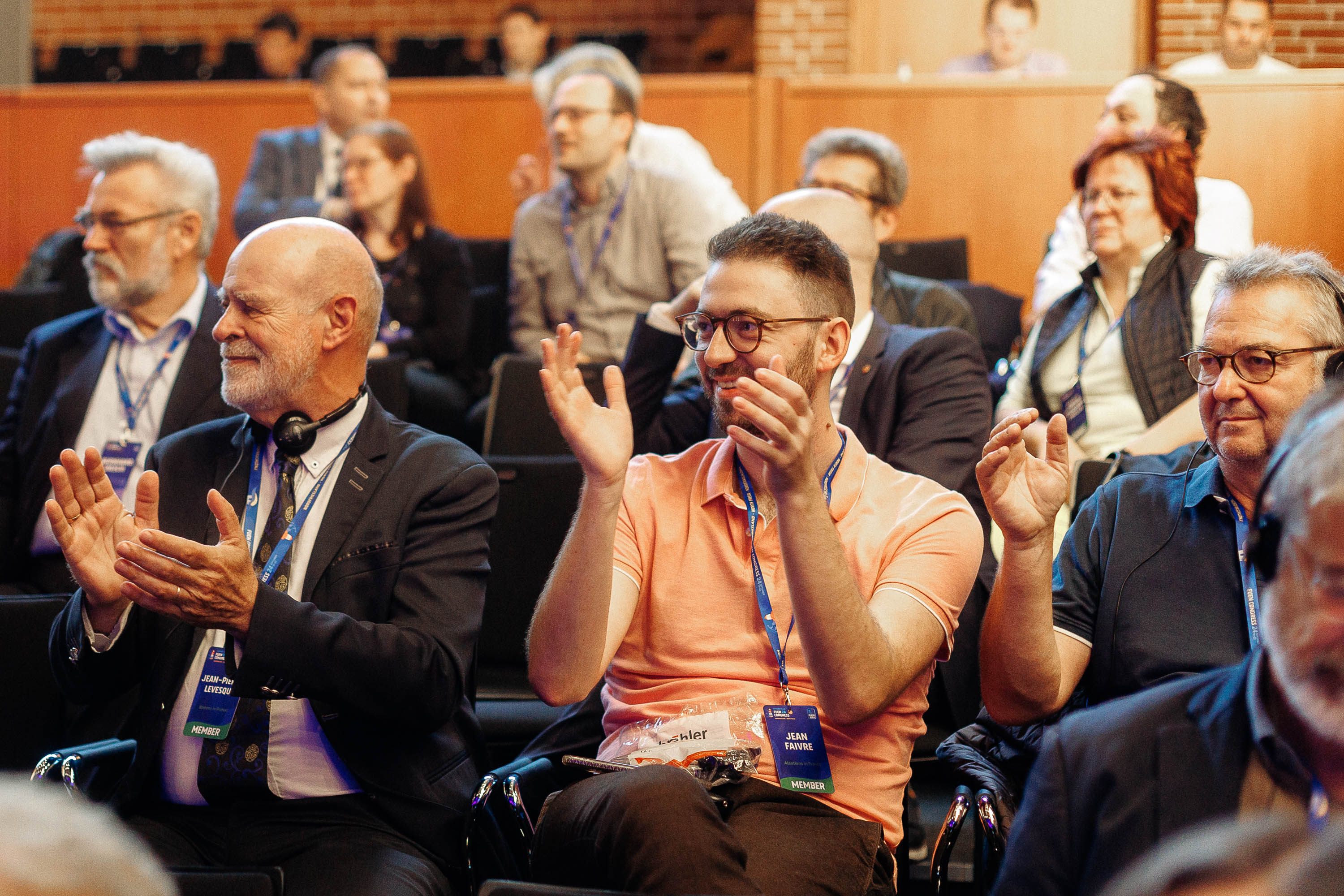
The future of FUEN: What course will we follow in the next 75 years?
20.09.2024After the first day of the 68th FUEN Congress in Husum/Hüsem (Germany) focused on the 75-year history of FUEN and the principles of its work, today the focus shifted to the future: What is the future of minority rights in the European Union? And where do we want to be in the year 2099? These were just two of the key questions discussed by the 180 participants of the anniversary congress on the morning of 20 September.
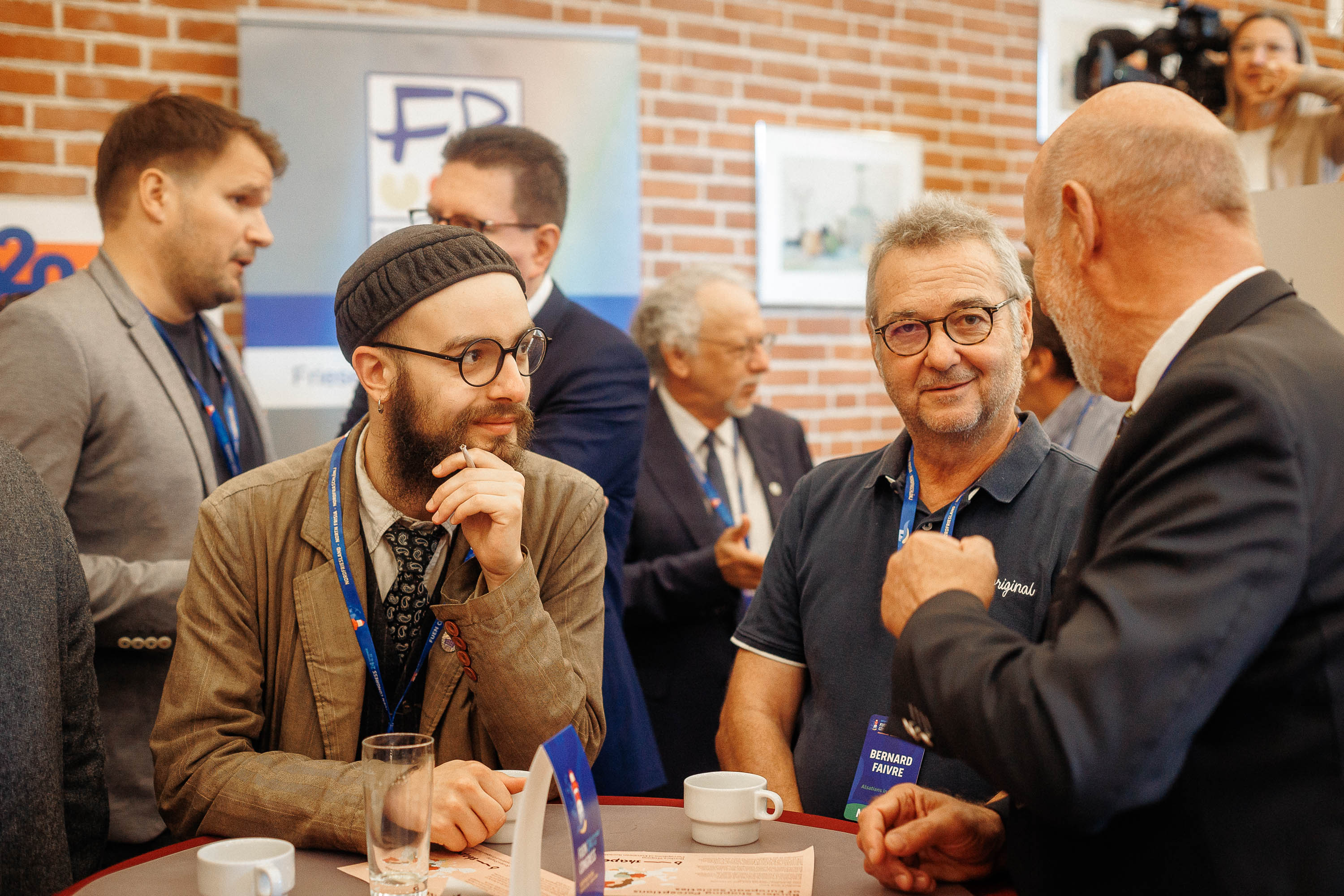
The exchange was initiated by Heinrich Bahnsen, the chairman of the Friesenrat’s Northern Section, who, appropriately dressed in a Nordfraschlönj jersey, spoke about the economic strength of North Frisia – a region that impresses with its innovative approaches and strong economic sectors, particularly in the field of renewable energy. The wind farms and other sustainable energy sources in the region play a crucial role in supplying green energy, thereby strengthening North Frisia’s economic position, Bahnsen explained.
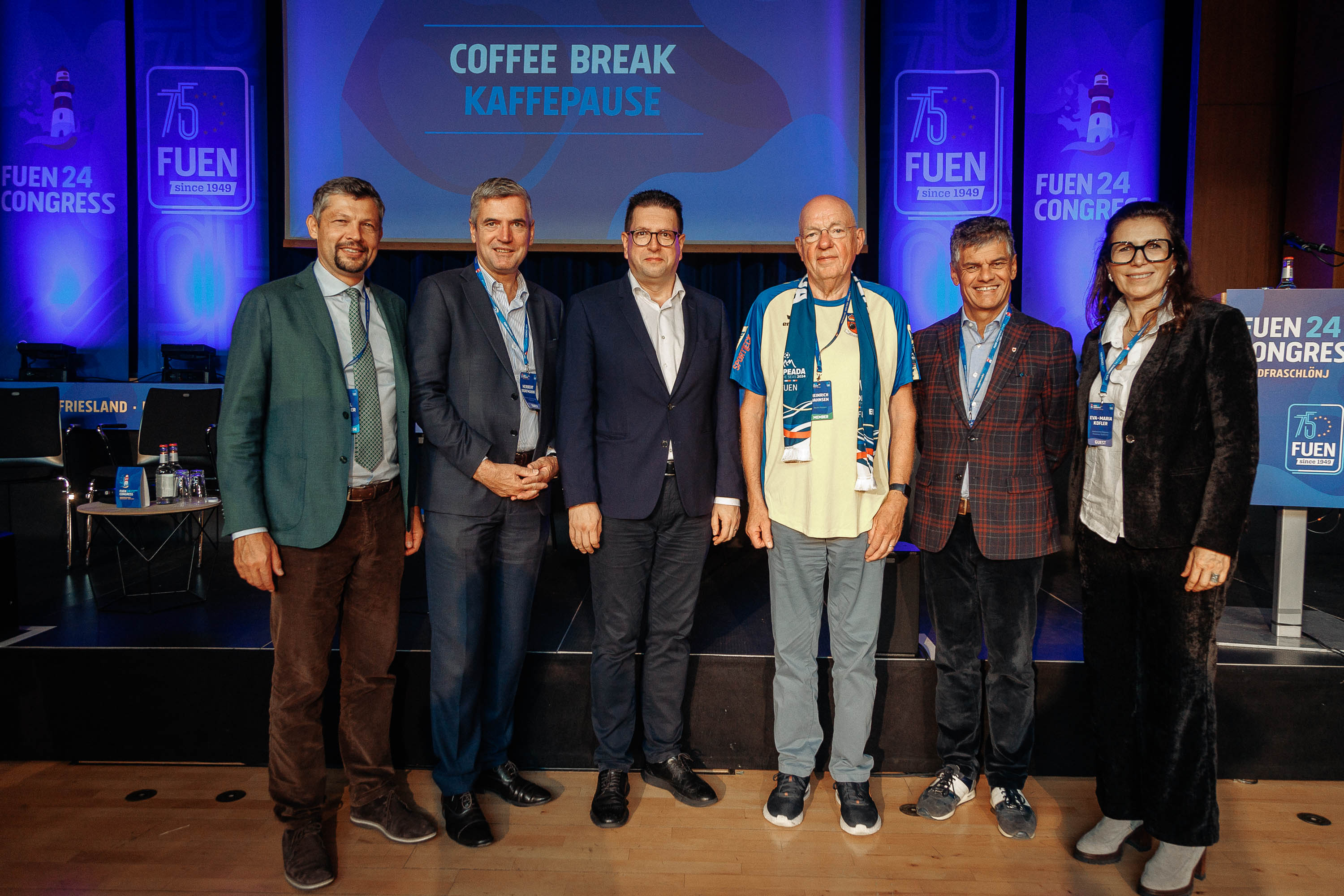
Johannes Callsen, Commissioner for Minorities of the federal state of Schleswig-Holstein, advocated in his speech for continued intensive collaboration between minorities and majorities. "Over the past decades, numerous instruments have been developed in Schleswig-Holstein through joint efforts by the parliament, government, and minority organisations, by both the majority and minorities. This has fostered structures and trust that will enable a stable coexistence in the future as well", he said.
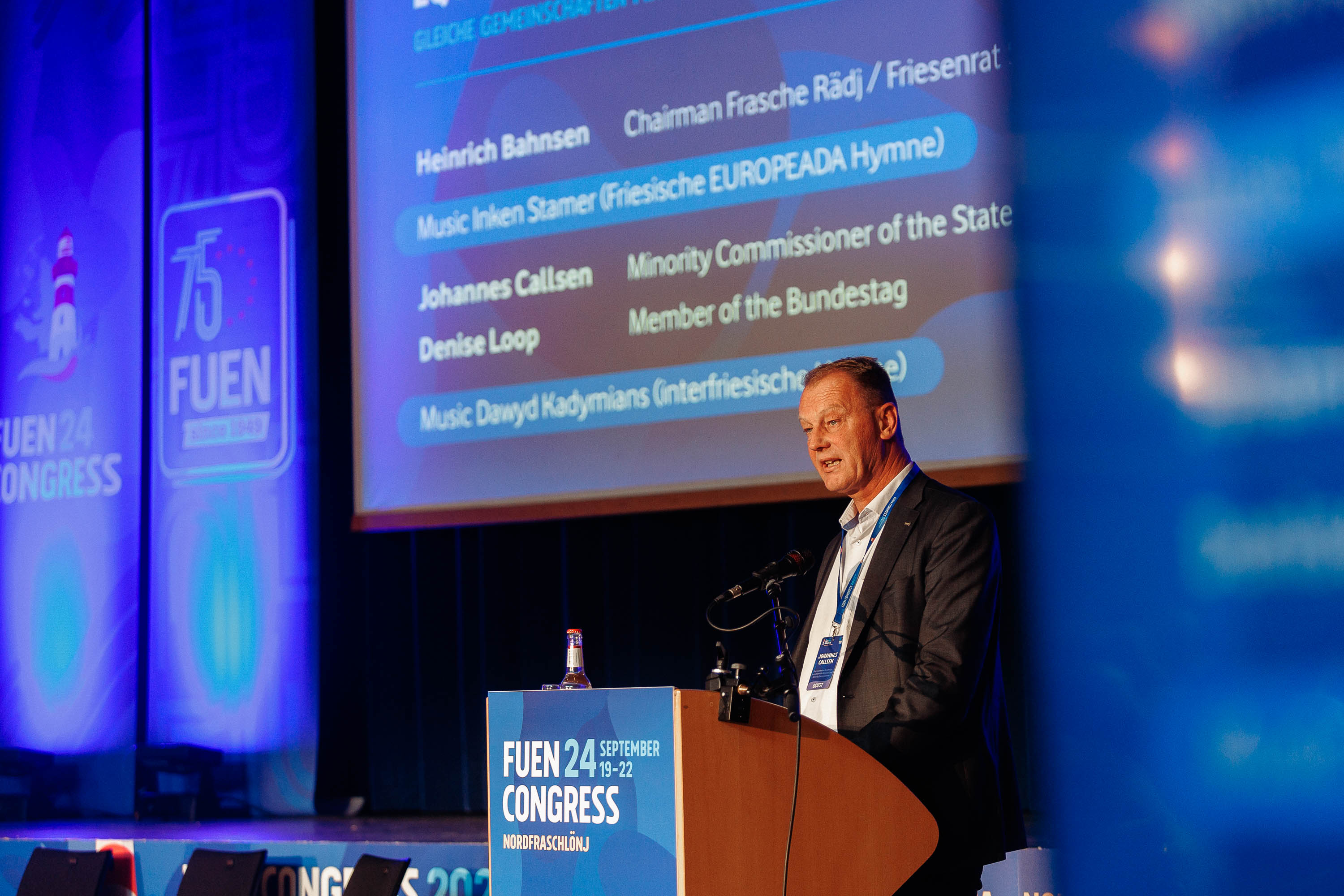
It remains his goal as Commissioner for Minorities, as well as the goal of the state government, to continue working on the basis of this stable and successful coexistence: "The equal participation of all groups in living together in Schleswig-Holstein is and remains our common concern. And FUEN is also an important European partner for us in this respect – for me, FUEN is a living community", Callsen concluded his speech.
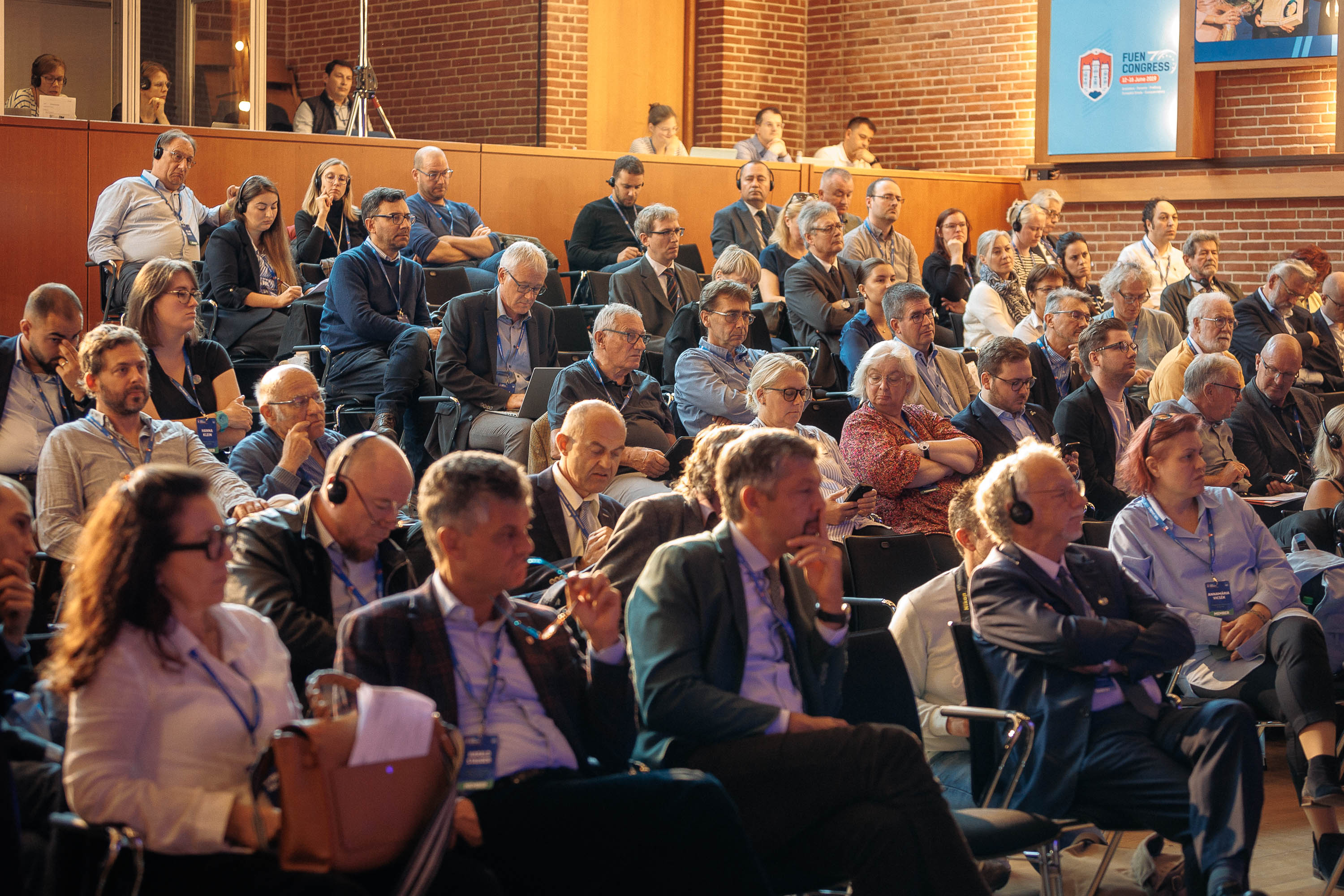
Denise Loop, Member of the German Bundestag for the constituency of Nordfriesland, highlighted the work of the Parliamentary Group on Minorities in the Bundestag, of which she is also a member. Within this parliamentary body, efforts are made to support the four recognised national minorities in Germany, while also keeping an eye on the German minorities abroad, she explained.
Regarding future challenges, Loop – similarly to the Member of the Bundestag Stefan Seidler the day before – addressed the cuts in the federal budget, which also affect minority funding. "But here we are engaged in cross-party discussions on how we can reverse this", Loop said. She further emphasized that minority policy must not be forgotten but must continue to play an important role.
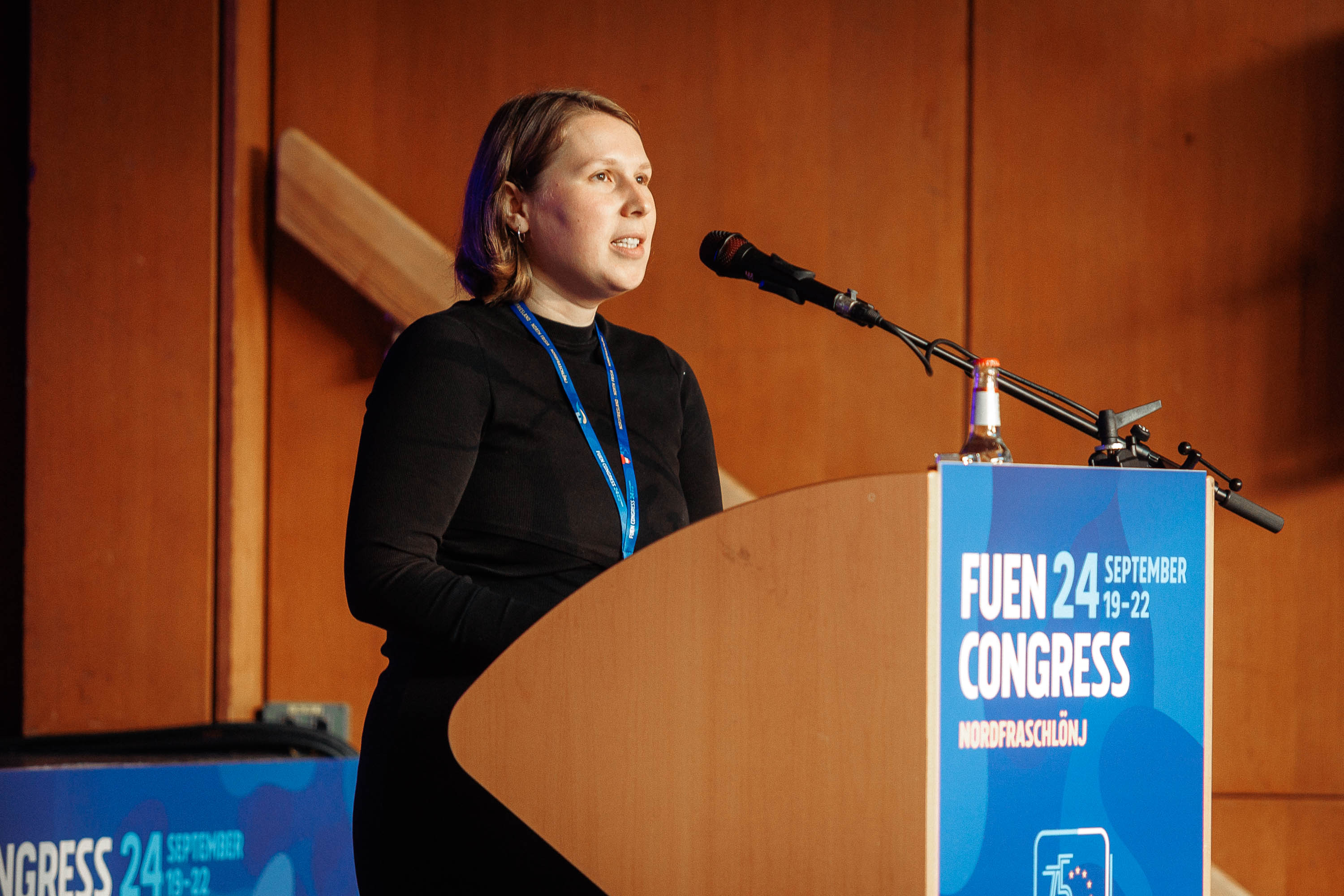
After that, the conclusions of the international "Ewald Ammende" conference, which FUEN held in Brussels at the beginning of the year with 40 experts on minority issues, were discussed. Among the participants of that conference, there was agreement that there has been no progress in the recognition and protection of the rights of minorities in Europe in the last 20 years. Instead, the current trend is in the opposite direction – regression instead of real progress.

Prof. Dr. Fernand de Varennes, former UN Special Rapporteur on Minority Issues and Prof. Dr. Paul Videsott from the South Tyrolean Institute of Ethnic Groups presented the implications of the aforementioned conference from early March during today's panel titled "Planning for the Year 2099".
In the opening speech of the panel, FUEN President Loránt Vincze pointed out that the experts had unanimously agreed that FUEN had taken the right actions. However, new strategies are needed to further advance the protection of minorities.
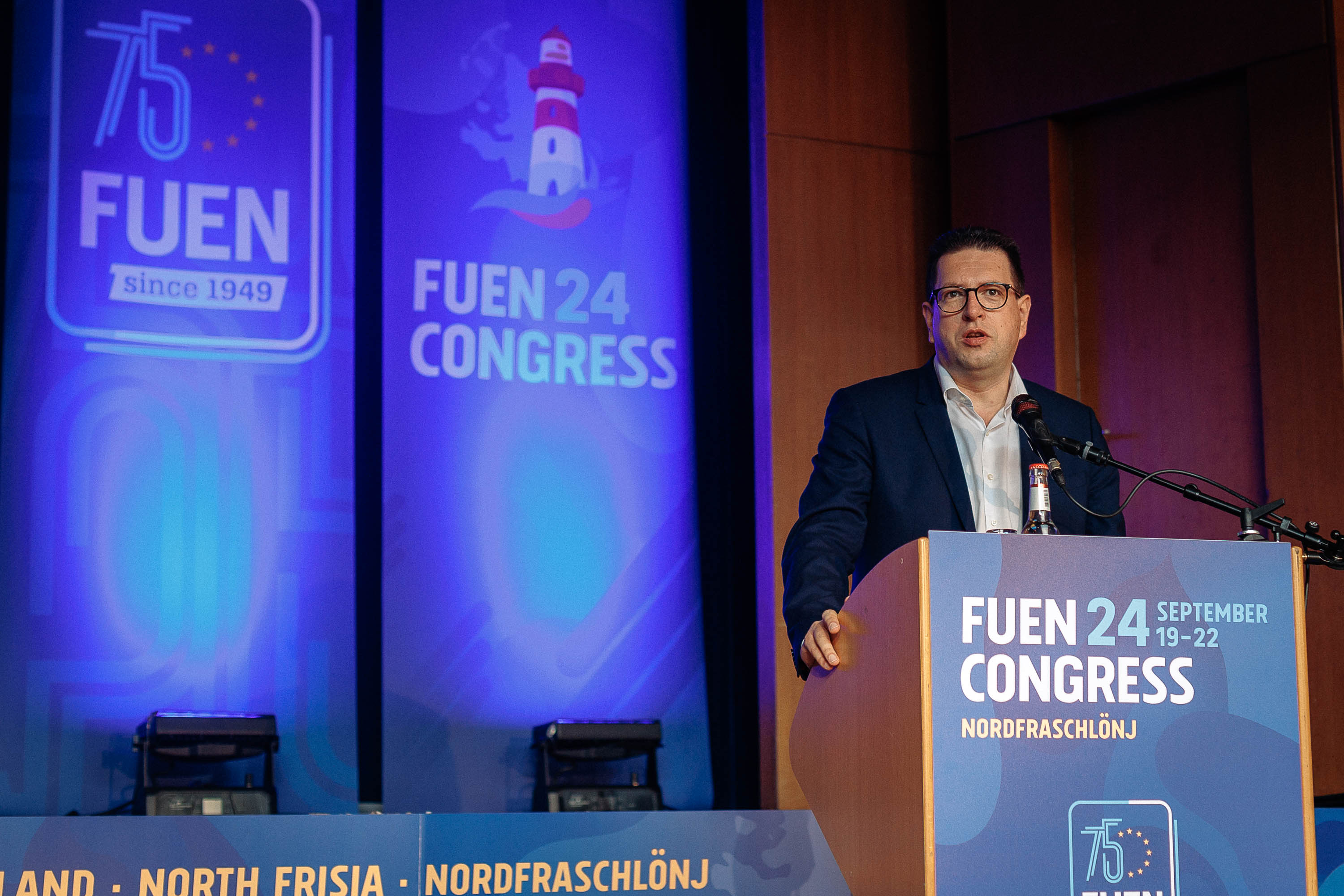
Fernand de Varennes explained that the optimism of 30 years ago regarding minority rights is long gone, that there has been little or no significant development in Europe for about 20 years to advance the protection of minorities when compared with other marginalized groups, and even that the treatment of national minorities seems to be getting worse, especially in the use of minority languages in official activities, and especially in education. “We have reached a critical stage and have to figure out how to counteract the apparent trend of regression in a currently unsympathetic and sometimes even hostile political context” – as the former UN Special Rapporteur put it.

In this regard, the experts had proposed a series of steps in March. Among the broad general approaches are that FUEN and other organisations set-up a working group for the next stage in its development and action: drafting a new Manifesto on the rights of national minorities for the 21st century – moving away from ‘symbolism’ into a strategy for the effective equality for national minorities, and a vision of what rights need to be protected and enshrined, and how to ensure respect for and support of linguistic and cultural diversity and more directly helps communities concretely on the ground.
The Council of Europe treaties on national minorities and languages do not create any direct rights that are legally enforceable, many states no longer to consider them to create obligations that must comply with, and the reporting mechanisms and recommendations in place are very long, and often ignored. This is why FUEN should establish a working group and program to reform and improve these instruments.
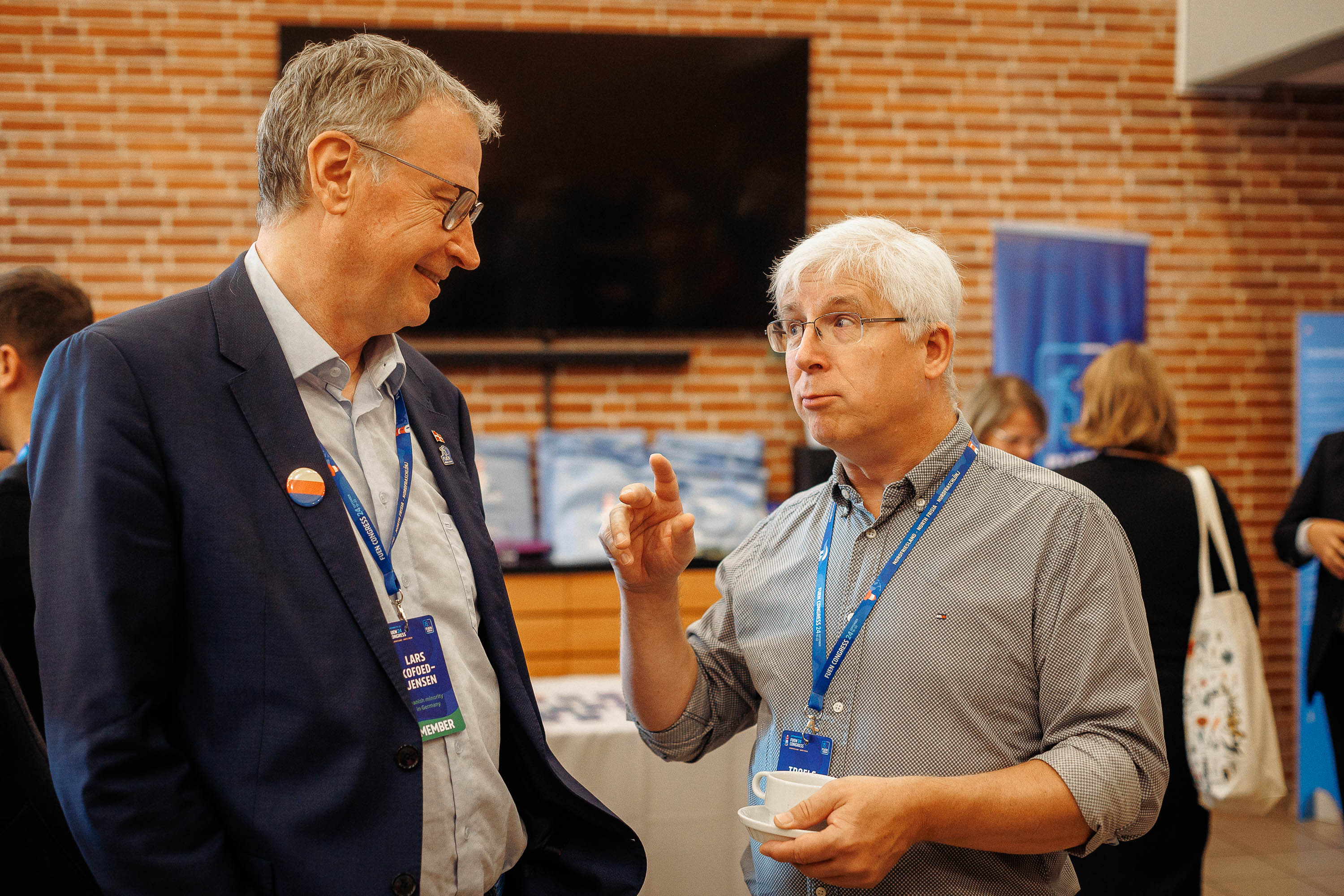
To ensure the visibility and presence of national minorities in European institutions, a European Minority Assembly should be established, as an independent international non-governmental organisation to be the largest and most comprehensive minority assembly in Europe. It should seek to sign a legal partnership agreement with the Council of Europe. Additionally, Permanent Minority Forums should be identified as priority initiatives to be set up within the EU, the Council of Europe, to function in an advisory role as well as be provided with significant presence, space and access to these international organisations.
A team of legal experts that monitor and get involved in cases of relevance for minority protection at the European Court of Human Rights and the European Court of Justice. This team could provide expert opinions to FUEN and its members and work with minority research organisations to study and publish reports on how the rights of minorities are being treated and interpreted at the European Court of Human Rights and the European Court of Justice.
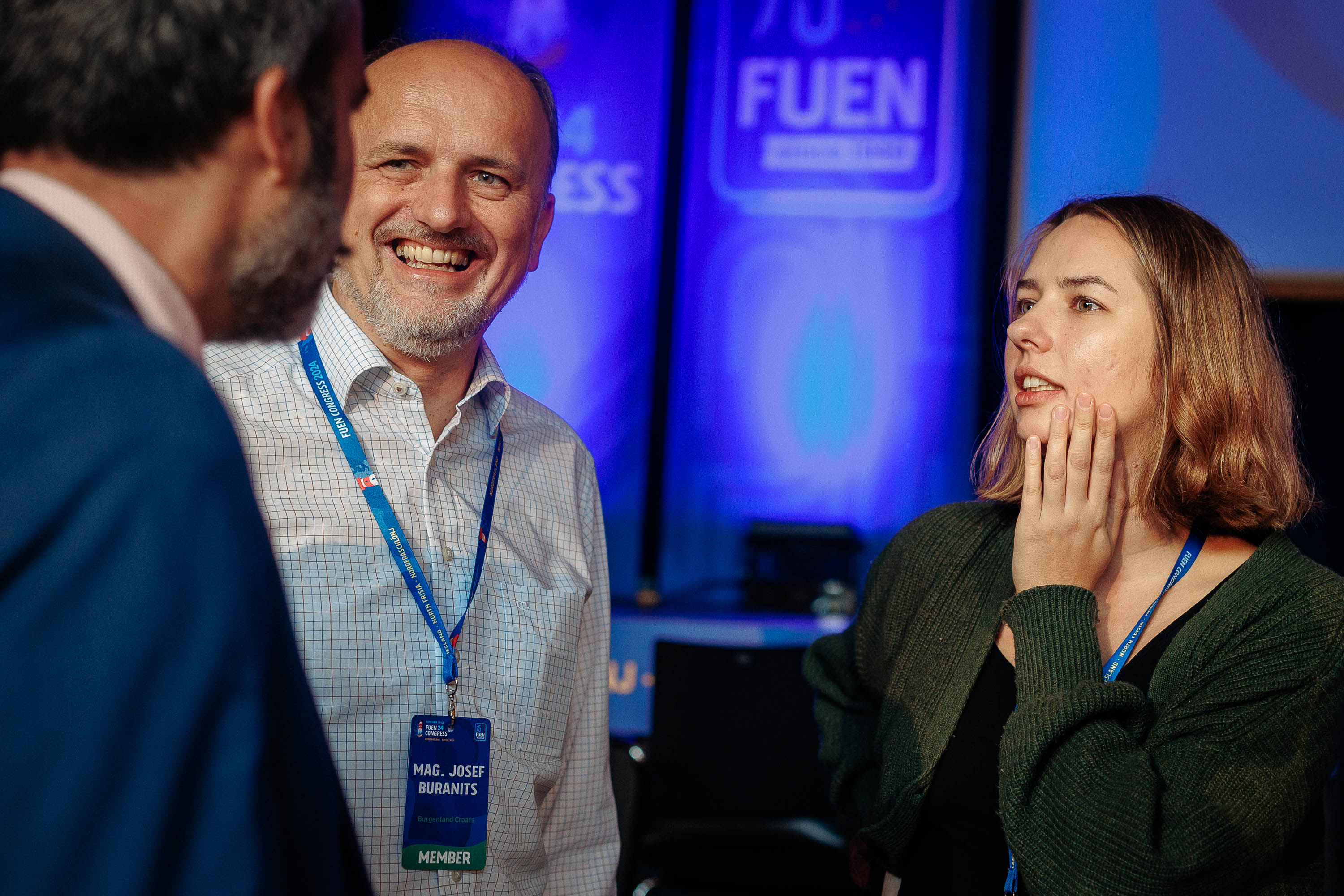
Efforts towards the European Union acceding to the FCNM and the Language Charter, as well as the adoption of minimum legal standards for minorities in the EU should be re-launched.
Paul Videsott said that the most important thing is to create awareness on the real condition of minorities. The experts suggested to create a draft programme of common goals all minorities can agree on, so when we have a window of opportunity to have something already prepared to present. Targets should also be set, so that the effectiveness of the measures can be evaluated, and in case the minority is still declining in numbers, new strategies need to be put in place. Thirdly, an implementation calendar is also needed to plan forward.
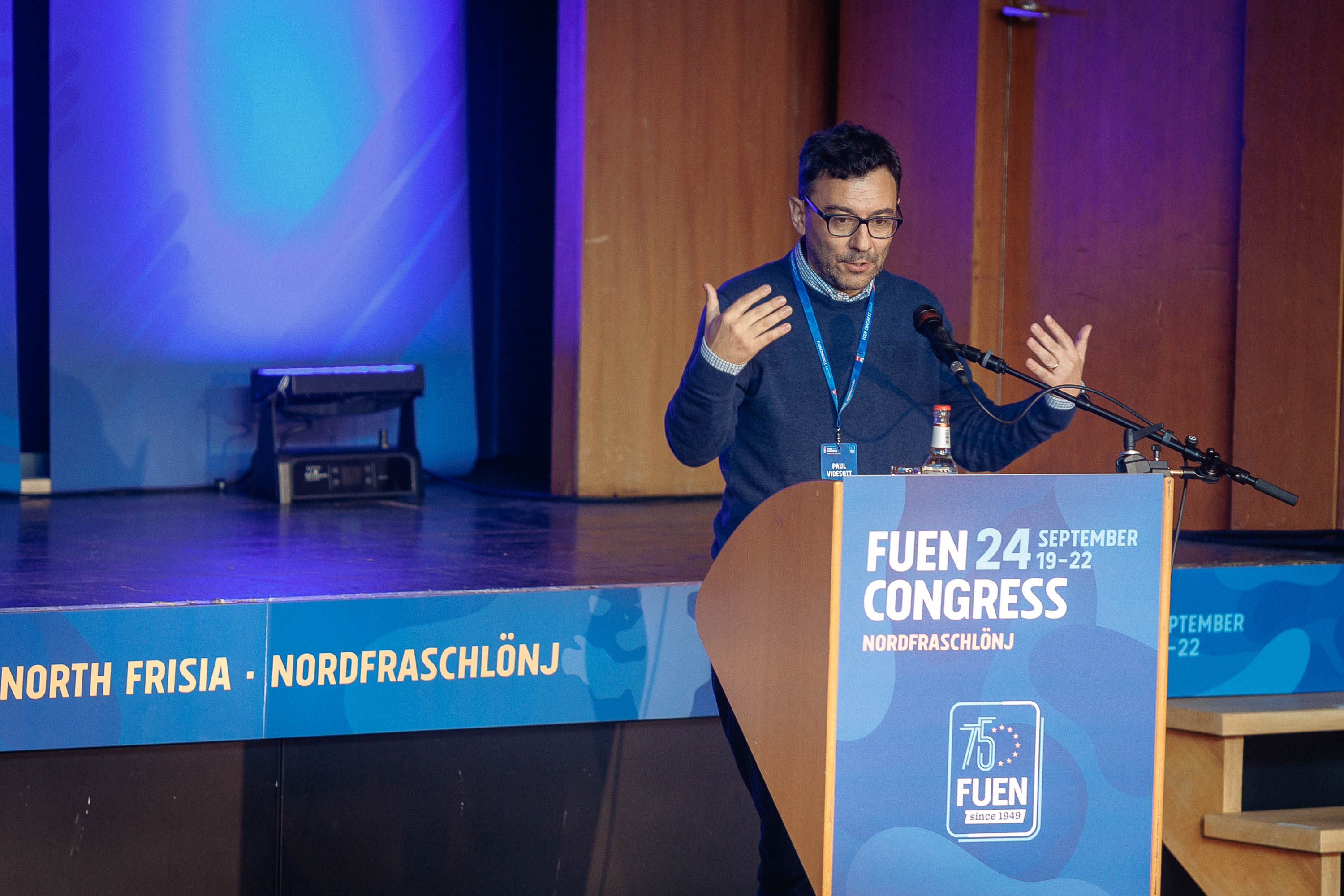
The discussion about minority rights in the European Union was continued in the following panel. Moderated by Dr. Beate Sibylle Pfeil, a legal expert on minority issues in Europe, the three members of the European Parliament Herbert Dorfmann, Rasmus Andresen and Loránt Vincze as well as the member of the Parliamentary Assembly of the Council of Europe (PACE), Elvira Kovács, took part.
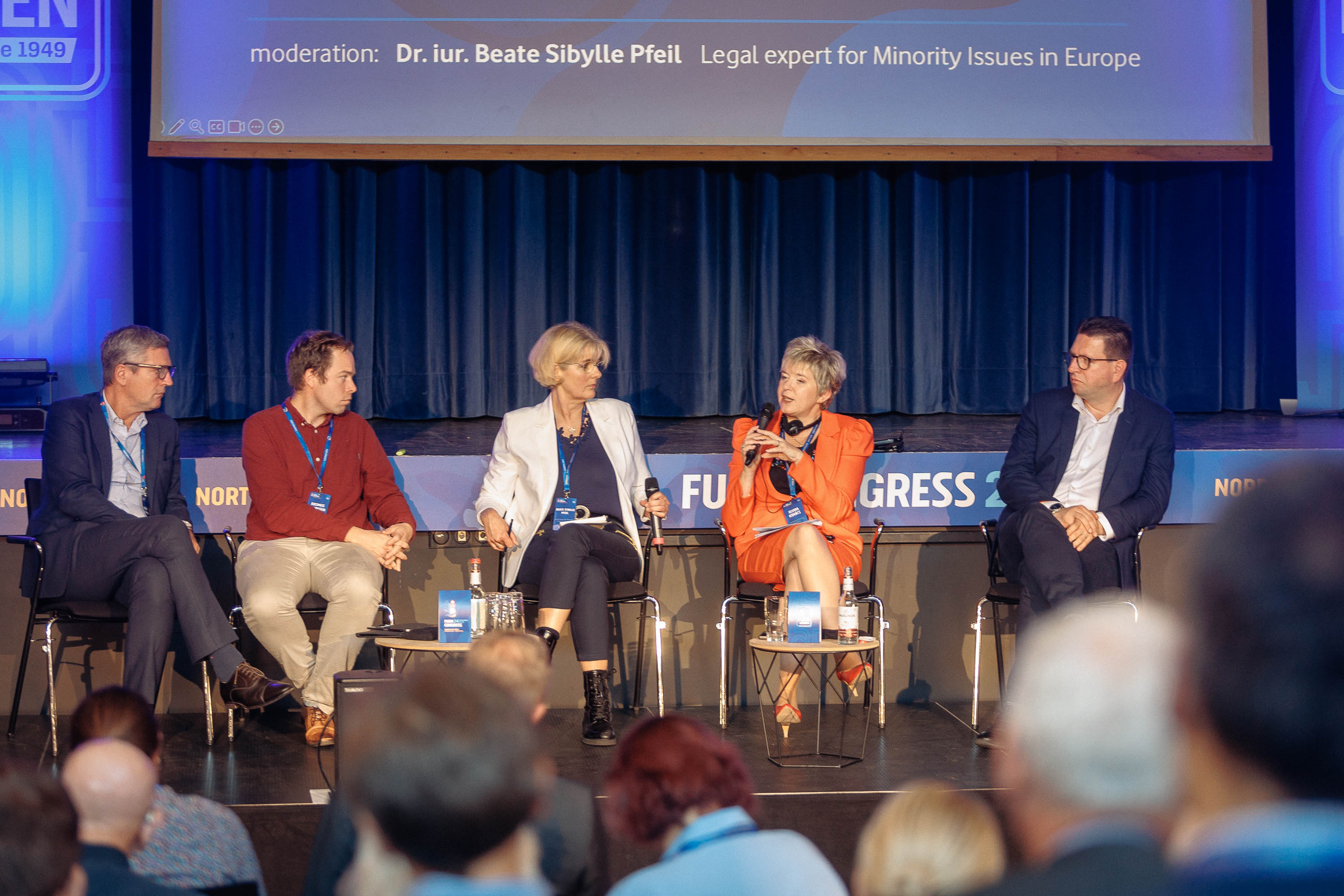
The second half of the day was then devoted to the six FUEN working groups, which met at various locations in North Frisia for internal working sessions and also went on excursions in the surrounding area. The second day of this year's FUEN Congress was rounded off with the Minority Market in the Husumhus, where FUEN member organisations offered specialties from their homelands for tasting.
COMMUNIQUÉ DE PRESSE
- FUEN wishes you a peaceful Christmas season, restful days and a bright, hopeful start to the new year!
- FUEN calls on the EU to act over systematic ethnic-based land confiscations in Slovakia
- Women of Minorities conference in Budapest calls for structural change to ensure equal political participation of minority women
- FUEN President Olivia Schubert at UN Forum on Minority Issues in Geneva
- "Laboratory of Peace": 28th Seminar of Slavic Minorities held in European Capital of Culture Gorica/Gorizia
- Equality in Political Participation and Representation: Third “Women of Minorities” Conference to Be Held in Budapest
- FUEN Working Group on Education discusses challenges and future of minority schooling in Europe
- 28th Seminar of Slavic Minorities in Europe to take place in Gorica/Gorizia, Italy
- Olivia Schubert in her first interview as FUEN President
- FUEN Assembly of Delegates elects new leadership – Olivia Schubert becomes new President














